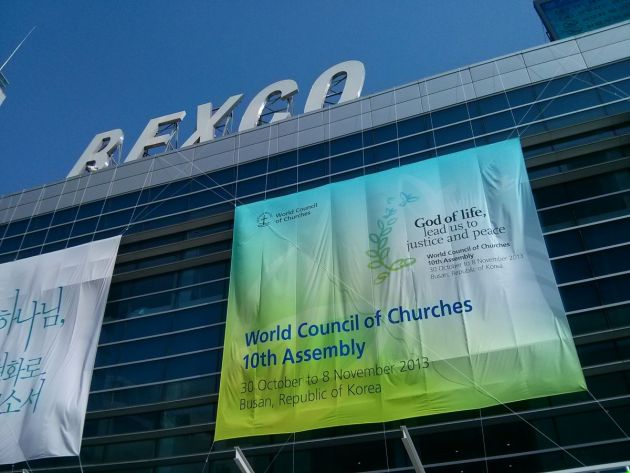World Council of Churches launches global just peace advocacy network

The World Council of Churches says it has launched an Ecumenical Peace Advocacy Network to build a just and sustainable peace, engaging churches, ecumenical organizations and civil society.
The WCC announced EPAN at its conference held from December 1 to 5 in Sigtuna, Sweden it said in a statement on December 9.
The work of the EPAN aims to turn into concrete actions the theme "pilgrimage of justice and peace" described in a call issued by the meeting of the WCC's highest governing body, its assembly in Busan in 2013.
"This consultation intended to create program synergies and develop collaboration methods, sharing best practices and lessons learned in peace-building, conflict prevention and advocacy for peace," said Rudelmar Bueno de Faria, WCC representative to the United Nations in New York.
The WCC meeting on Peace-building and Advocacy for Just Peace was hosted by the (Lutheran) Church Sweden, the Uniting Church in Sweden, and the Christian Council of Sweden.
More than 80 ecumenical advocacy experts, church leaders, as well as civil society and United Nations partners from 37 different countries, took part in the event.
The meeting focused on a framework for advocacy for peace, as well as practical strategies and tools required to support coordinated international advocacy for a peaceful world.
Such a strategy would be employed by ecumenical organizations, including the WCC and its member churches, the aid and development ACT Alliance members, national councils of churches and other partners from civil society.

Bueno de Faria noted the meeting in Sweden is viewed by the WCC "as part of the wider pilgrimage of justice and peace."
It is a base for "an intentional process to equip the ecumenical movement to play a more meaningful and effective role in advocacy for just peace."
The event will follow-up in 2015 in Africa and the Middle East meeting aimed at preparing advocacy strategies and plans to promote just peace, reconciliation and conflict prevention.
"The new Ecumenical Peace Advocacy Network is a great opportunity for churches to act collectively to address issues related to peace on a global level," Bueno de Faria said.
"Churches and ecumenical organization have the responsibility to mobilize themselves on specific peace issues and influence processes that brings about lasting and just peace."